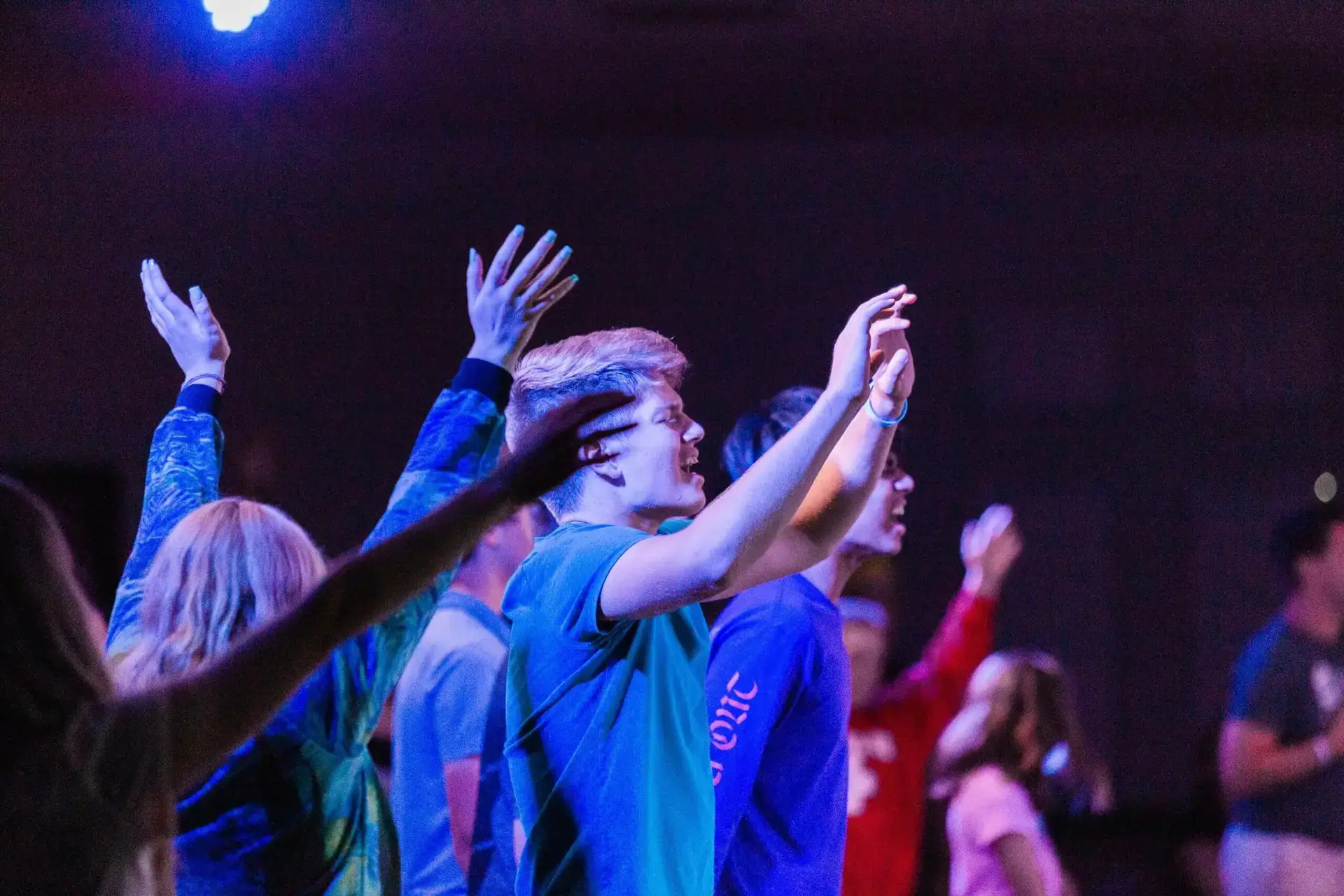Can you smell the Axe body spray with strong undertones of body odor? Or maybe your back is already sore from sleeping on a bed that needed a mattress change in the 1980s. Yep, it’s time for summer camp. That magical week of the summer when parents get a break from their kids. I mean when we get to invest in students.
Summer camp is one of my favorite weeks of the year. What’s not to love? Constantly keeping students from dehydrating and always making sure that one kid hasn’t wandered off to play in the street or woods. Good times.
Seriously though, summer camp is a mountaintop week that we cannot let pass by us. If you are like me, you have done camp enough that you can do it in your sleep. The problem with that is that the shine wears off, the freshness can go away or we can phone it in pretty easily.
Others of you, this may be your first summer, and it all seems overwhelming. Don’t let the stress of the details pull your focus from the life change this time can bring for you and your students.
We all know our time with students on a regular basis is very limited, which means camp is one of the few opportunities we get to have significant, intentional time with students.
As much as we are tired of running basketball tournaments or planning Thursday night activities (that somehow always make everyone cry), we have to make the most of the time we have with students. There are a lot of things we can do to make the most of camp, here are a few suggestions for you to consider.
Recruit leaders, not chaperones.
This is huge. I hope you understand where I am going with this. I have literally told a mom, “You are such a great mom, but I don’t need you to be Momma Bear roaring at kids to ‘act right’ this week, I need for you to be a spiritual leader.” Her initial response was, “I’m going to have to think about that a minute.” Once we talked it out more, she understood, got on board and has become an incredible leader.
Chaperones make sure students are where they are supposed to be and make sure they are eating. They are the “lifeguards” of camp. They will save your life if you are drowning and blow a whistle at you for running at the pool, but they aren’t the ones teaching you to swim.
Leaders, on the other hand, are keeping kids safe, but they are in the pool teaching them to swim. They have intentional conversations, show up at basketball tournaments and truly worship during worship times instead of making sure little Sally and little Jimmy aren’t holding hands (camps bae’s am I right?). This change in how you recruit who you take can revolutionize camp for you and your students. This does take intentionality and training, but it is worth it.
Having leaders who focus on the students’ hearts leads to students who want to be where they are supposed to be, and who might hold their camp bae’s hand, but they love Jesus more.
Do a “family” night.
Whether you are doing your own camp or you are at a camp with multiple churches, it can be huge for group unity and growth for you to plan fun times for just your students.
When doing your own camp, this is easier because you make the schedule. But, even at a group camp, there are usually times you can carve out to have your students do any number of things like family board/card games, minute-to-win-it games, order in the best pizza in the nation or even go off campus (when possible) to go bowling, to trampoline parks, canoeing, etc.
Students tell me often about how great these times are, not just because they are fun, but how they got to know new people and see how our student group is bigger than them.
Note: Normally I have students either rotate groups during whatever is planned or from the beginning I make them be in groups with people that are not their best friends. This promotes getting to know new people and deepens the “family” bond of your group.
Intentional one-on-one conversations.
This is where those leaders (not chaperones) really come in and change the camp atmosphere. Divide the students names’ up as evenly as you can between the leaders based on gender and any prior relationship.
If your leader to student ratio is good, that means everyone has 4-6 names. With these names the leaders will spend their time at camp focused on having at least one intentional conversation with the students they have been given and will pray for them.
There is a balance in how to do this so that it is effective and not super awkward. I, as the leader, use our first large group setting to tell the students that they will have at least one one-on-one conversation with an adult leader. I assure them that it may be awkward at first, but it is not weird and the leaders are doing this because they love them and want to know them more.
This helps the student be ready to have an adult ask to talk to them, and they do not assume they are in trouble. I have had students beg to have these conversations, especially if one of their friends has talked with a leader already and it went well. The rest keep asking when it’s their turn.
I didn’t expect this the first time it happened, but it was refreshing. A lot of these students do not have adults stop and intentionally have a real conversation with them, so when they see leaders who care about them, they let their guard down.
Have your leaders touch on these five topics: home, school, extracurricular, friends, spiritual. Spend time helping your leaders understand that this is a conversation not an interrogation. We want to know how to help the students and pray for them, not get top secret information from them.
I usually ask students to eat a meal with me, but if that doesn’t work out you can have these conversation during free times. Meals really are the best option because there is something about eating together that helps it not feel as awkward. It also helps that meals are in public places, so you don’t have to stress about being one-on-one with a student.
These are great times to see where students are with Jesus, giving them space to ask hard questions about faith, or for lost students. It’s a time for your leaders to share the Gospel. I can’t tell you how many of these conversations have led to salvation.
The biggest thing really is to just be intentional with every second you have with students. I know you love your students, and you want nothing more than for them to love Jesus deeply. Camp is our time to push them farther faster in their faith.
JJ Yount serves as student minister for Mount Zion Baptist Church, Huntsville. This article was originally published at ymlink.org.







 by
by